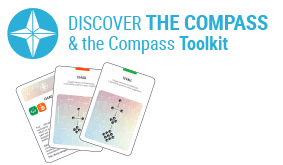Microtraining
/This blog reflected a while ago on the importance of informal learning. A relative new concept called ‘microtraining‘ might be a concrete answer to integrate informal learning in the learning structure of your organization. It is about a learning arrangement of more or less 15 minutes for each learning occasion. An e-learning paper from De Vries & Brali defines the microtraining as a learning arrangement of about 15 minutes for each learning occasion. Each session contains elements like an active start, demo or exercise, feedback or discussion and a shared view on how to proceed. The delivery of a micro-training can be blended combining face-to-face and on-line.
The concept of the microtraining is now part of a European Leonardo Da Vinci project. To understand the concept better we highlight their project case:
Due to day-to-day work demands companies are often unable to free up time for knowledge transfer. This is a problem. Because knowledge transfer on the shop floor is key to promoting sustainable development the environment and safety. Within this project the current situation in the construction, chemical and machine-building sectors is being analyzed in order to develop a Microtraining Support System that helps companies to put this training method into practice. The project is particularly aimed at the further development of the existing method and the evaluation of its effectiveness.
If you want to know more about microtraining, click here. After reading the entire article you might be able to answer our poll whether microtraining could be valuable in your learning and training activities. Let us know what it could mean for you.
[polldaddy poll=1153829]










